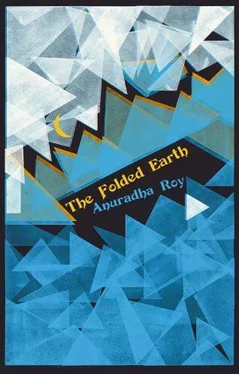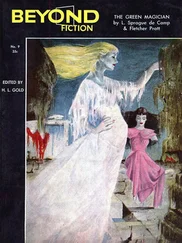The eagles fly unconcerned over the trucks filled with young men thinking their sombre thoughts. Further down, at Bisht Bakery, the staff are sunning themselves on the courtyard outside the shed with the ovens. They have decided not to bake bread that day because the old bread is still unsold. The tourists will only return next year. Christmas is just over, and Christmas pastries are getting drier and staler in the glass case. The eagles have their eye on a tastier morsel: they swoop down on the rubbish dump near the bazaar, having seen movement — a rabbit, or a mongoose. People leap away in alarm. The town’s local environmentalist takes a picture on his mobile’s camera and says he will send it to Hornbill . “What is Hornbill?” the friend asks.
Up the steep Alma Hill and away from the bazaar towards the cantonment, the eagles pass over the church and St Hilda’s school. There are women sitting outside the church in the sun, peeling fruit that has been heaped high, orange and yellow. Music plays, some of them sing. In another corner, women make earrings and bead necklaces. This is their new line of business. The elections are over, Ankit Rawat is installed in Delhi as the first-ever M.P. from Ranikhet, and nobody is any longer interested in the Christian mission of the school, not until the next elections. Miss Wilson has placed a larger portrait of herself on the wall facing the old one. Next to the laminated Pietà, she has added a portrait of the Pope, whom she dreams of glimpsing one day in the Vatican. She has decided she will not object to the girls playing film music in the factory. She will not admit it, but she enjoys it.
At Mall Road, the eagles pause on the summit of a deodar tree. They look down at the people sunning themselves on the parapet, storing up heat for the long, dark, cold evening ahead. They observe the man roasting peanuts, the shopkeepers chasing monkeys away with sticks, the girls queuing up at the water tap, the jeep-taxis coming and going. There is a baby monkey alone by the roadside: tiny, pink-eared, a morsel of flesh, blood, life. The eagles stretch their wings, and think of food. But the monkey’s father and mother appear from somewhere, they have sensed danger. They collect the baby in their arms and leap away over rooftops to a place less exposed.
Frustrated, one of the eagles perches low on the arm of the new statue Mr Chauhan has installed on Mall Road. The first month, it was a statue of B.R. Ambedkar, wearing a suit and round glasses. The second month, overnight, the blue suit was painted olive and given a belt, an army cap was placed on its head and the very next morning the people of Ranikhet had gasped in collective astonishment, for they had found Subhas Chandra Bose where Ambedkar had been, as if by magic. Mr Chauhan had seen possibilities that no-one before him had seen. He alone had noticed there was no need to change the statue’s face, since both men were rotund and wore similar glasses. Now, Mr Chauhan cannot stop himself from telling every passerby that he has invented the world’s first transformable statue, ready for any occasion. With a bit of effort, he thinks, it can become Nehru too, though removing the glasses may present a problem. “But where would solutions be if there were no problems?” he says.
One of the eagles pecks at the statue, leaps onto its head, stretches its wings, and takes off. The pair fly further up Mall Road, over the decrepit, rambling colonial houses. They have nested there once and may do so again. They fly over Aspen Lodge and the forest road to the Westview Hotel. They fly over a leopard padding down the dusky ravine near Rosemount Hotel. Over Gappu Dhobi’s house where lines of clothes are drying and fading in the strong winter sun. They start their descent when they reach an overgrown lawn, and I open my eyes, sensing a shadow sliding over my face. I can see their feathers and talons, they are so low.
I have never seen eagles before, these beautiful and dangerous birds, in my part of the hillside, and I stare at the pair wheeling and circling over me. Where have they come from? Where are they headed? Could they really have come here all the way from Mongolia or Kazakhstan? Diwan Sahib would have told me everything about them, we would have looked at them, together, spellbound. Their wings are immobile in flight, the barest whisper of movement, and they pare the sky in unbroken circular lines, as if it’s an orange. I watch them for as long as I can until they become high, black specks swallowed up by the blinding dazzle of the sun. I close my eyes and savour my last few days at the Light House before it is returned to the Army. All of us have to look for new places to live in. Ama thinks she will take Puran and return to her ancestral village in the high mountains. She has nobody to live for in Ranikhet any longer, she says.
Charu came once, changed. Married now, bride-like, and not at all dishevelled as before. Her arms were covered in red bangles from wrist to elbow, she was still wearing her mother’s gold and pearl nose ring, and the parting in her hair was red with sindoor. She looked remote and grown-up, although just eighteen. Ama, practical as ever, scolded her once to show her what was what. After that she revelled in telling the hillside lavishly spiced stories of Charu’s brave journey to Delhi. She fed Charu kheer every day, and would not let her do any work — now she was not the daughter any more, she was a guest who belonged elsewhere.
A month after Charu’s visit home ended, I had a letter which I ran to show Ama, saying, “See! Your daughter can write!”
Maya Mam,
Are you well? Are Ama and Puran Chacha well? I am well. He is also well. Singapore is very beautiful. I have seen the sea.
With respect,
Charu.
Ama has proven yet again that there is no woman more shrewd this side of the Nanda Devi. After I read her Charu’s letter, she went into her house and reappeared with a brown-toothed smile, holding out a packet wrapped in layers of plastic.
“I have something for you too. This is what Diwan Sa’ab’s nephew was looking for, I think,” she said. “Now he’s gone, it’s yours to do with as you please.” Her smile broadened and twisted. She said nothing more as she left me holding the packet.
I unpeeled the packet and read its contents with a sense of astonishment mixed with disbelief. For it was clear that in the end, Diwan Sahib’s closest, darkest secrets had been biding their time in the care of our town’s greatest gossip. The packet was not even sealed. Could Ama have stolen and hidden away those papers to spite Veer? Or had Diwan Sahib given them to her, thinking his papers would be safest with a trusted, unlettered village woman? Even when that woman was Ama?
I have that packet in my hand this afternoon as I lie in the sun and think about this soon-to-be-deserted house, which will keep its ghosts and stories for its next occupant. All the talk around me is of the future and of plans. I talk of neither. I no longer plan anything. I know nothing but the present, this day, this hour.
I open the thick packet. I have been through it many times these past few days. Now I know that Diwan Sahib was not playing a practical joke when he titillated scholars with rumours of love notes from the past. There they are: three sheets of yellowing paper, with a famous old handwriting that I recognise from signatures I have seen in print a hundred times.
The first letter is written on the back of the menu card at a banquet for a shikar party. Annotated with a “[EM to JLN]” in Diwan Sahib’s hand, it says:
We are 12 in our ladies’ carriage. It has sliding window panes and we had to climb in by a ladder. Does your hunting buggy have a ladder too? Do you know, mine has a secret chamber inside. One of the younger Begums tells me that in case of an animal attack, one must duck and slip into the chamber and make an emergency exit. But my only thought is that I should like to spend this entire shikar in a secret chamber with the one man in the world with whom I feel the deepest sense of peace and happiness.
Читать дальше












